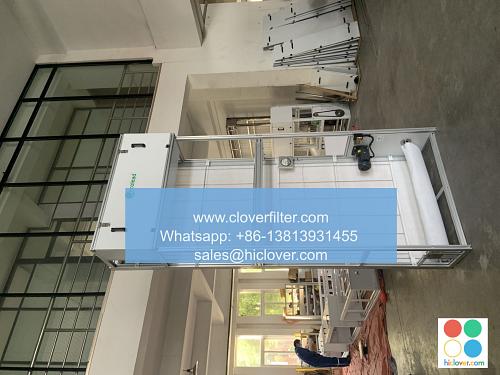The Importance of Air Filter Integrations in Modern HVAC Systems

The integration of air filters in modern Heating, Ventilation, and Air Conditioning (HVAC) systems is of paramount importance for maintaining optimal indoor air quality, reducing energy consumption, and minimizing the risk of airborne diseases. In this article, we will discuss the significance of air filter integrations in HVAC systems, highlighting various application areas, and emphasizing the role of advanced filtration technologies in creating healthy and sustainable built environments.
Indoor Air Quality and Health Implications
Poor indoor air quality can have severe health implications, ranging from respiratory problems to cardiovascular diseases. The World Health Organization (WHO) estimates that approximately 3.8 million people die prematurely each year due to indoor air pollution. Effective air filter integrations in HVAC systems can significantly mitigate these risks by removing airborne pollutants, such as particulate matter (PM), nitrogen dioxide (NO2), and volatile organic compounds (VOCs). High-efficiency air filters, such as HEPA filters and activated carbon filters, can capture up to 99.97% of particles as small as 0.3 microns, ensuring a substantial reduction in indoor air pollution.
Energy Efficiency and Cost Savings
Air filter integrations can also have a significant impact on the energy efficiency of HVAC systems. Clogged or dirty air filters can increase energy consumption by up to 20%, leading to higher energy bills and reduced system performance. Regular air filter maintenance and replacement can help maintain optimal system performance, reducing energy consumption and minimizing the environmental footprint of buildings. Moreover, advanced air filtration technologies, such as nanofiber filters and electrostatic precipitators, can provide enhanced filtration efficiency while reducing energy consumption.
Application Areas and Industry Trends
Air filter integrations have various application areas, including:
* Commercial buildings: Office buildings, shopping malls, and hospitals require effective air filtration systems to maintain healthy indoor environments and prevent the spread of airborne diseases.
* Industrial facilities: Manufacturing plants, warehouses, and industrial processes generate significant amounts of airborne pollutants, making air filter integrations crucial for maintaining worker health and safety.
* Residential buildings: Single-family homes, apartments, and condominiums can benefit from air filter integrations to improve indoor air quality and reduce energy consumption.
* Transportation systems: Air filtration systems are essential in vehicles, aircraft, and public transportation systems to maintain healthy indoor environments and prevent the spread of airborne diseases.
The trend towards smart buildings and Internet of Things (IoT) technologies is driving the development of advanced air filtration systems that can be integrated with building management systems (BMS) and HVAC controls. These systems can provide real-time monitoring and optimization of air filtration performance, enabling building owners and operators to make data-driven decisions and improve overall building performance.
Conclusion
In conclusion, air filter integrations are a critical component of modern HVAC systems, providing numerous benefits for indoor air quality, energy efficiency, and cost savings. As the demand for healthy and sustainable built environments continues to grow, the importance of air filter integrations will only continue to increase. By highlighting various application areas and emphasizing the role of advanced filtration technologies, we can create a better understanding of the significance of air filter integrations in modern HVAC systems and promote the development of more efficient, effective, and sustainable air filtration solutions. You haven’t asked a question or provided a prompt for me to respond to. Please go ahead and ask your question, and I’ll do my best to provide a helpful and informative response.

